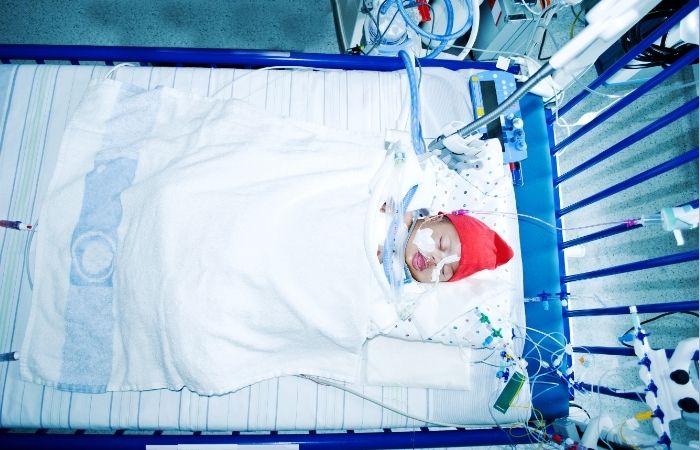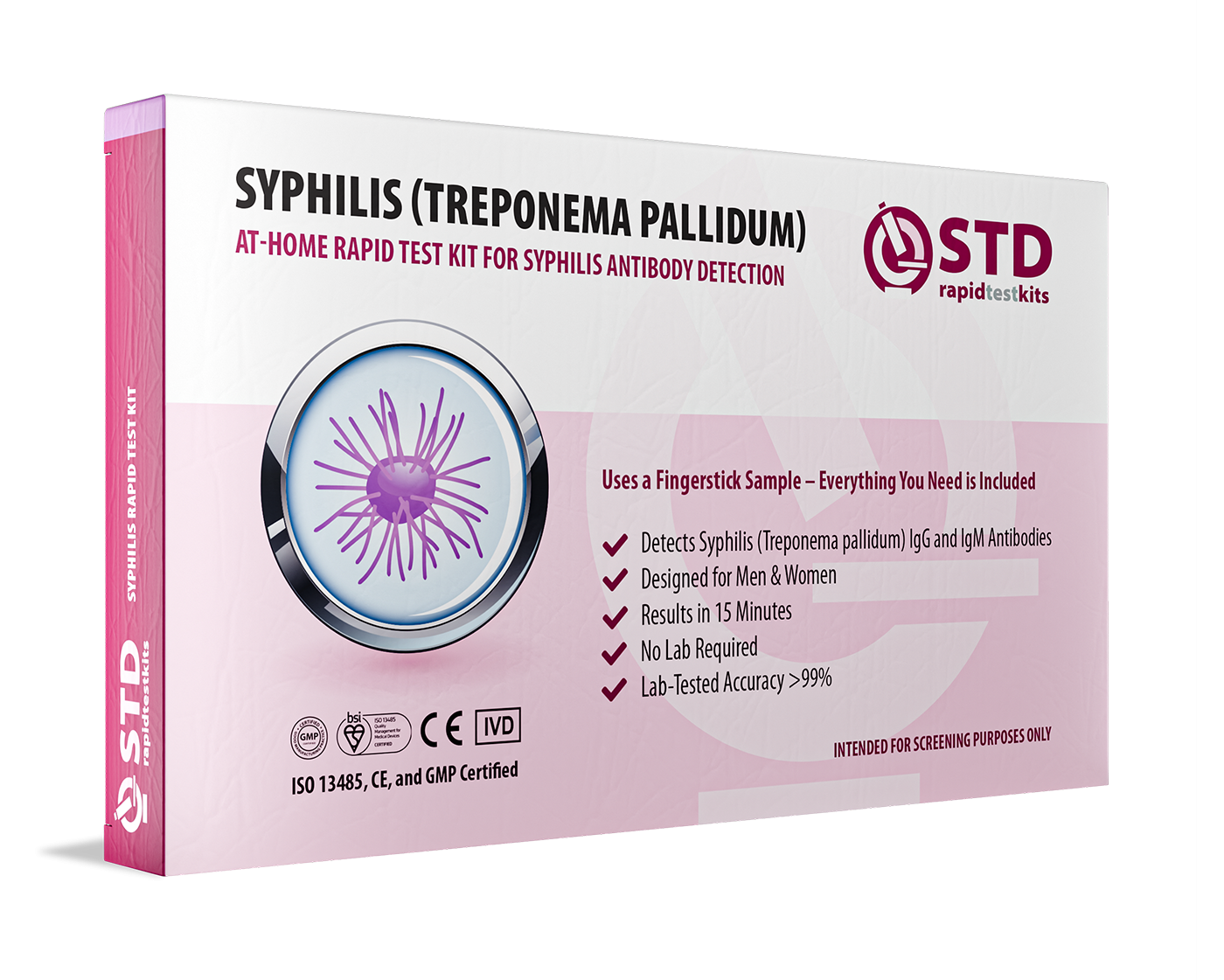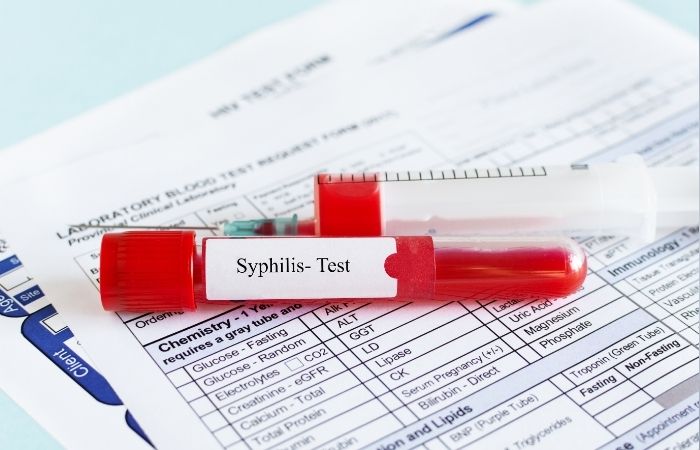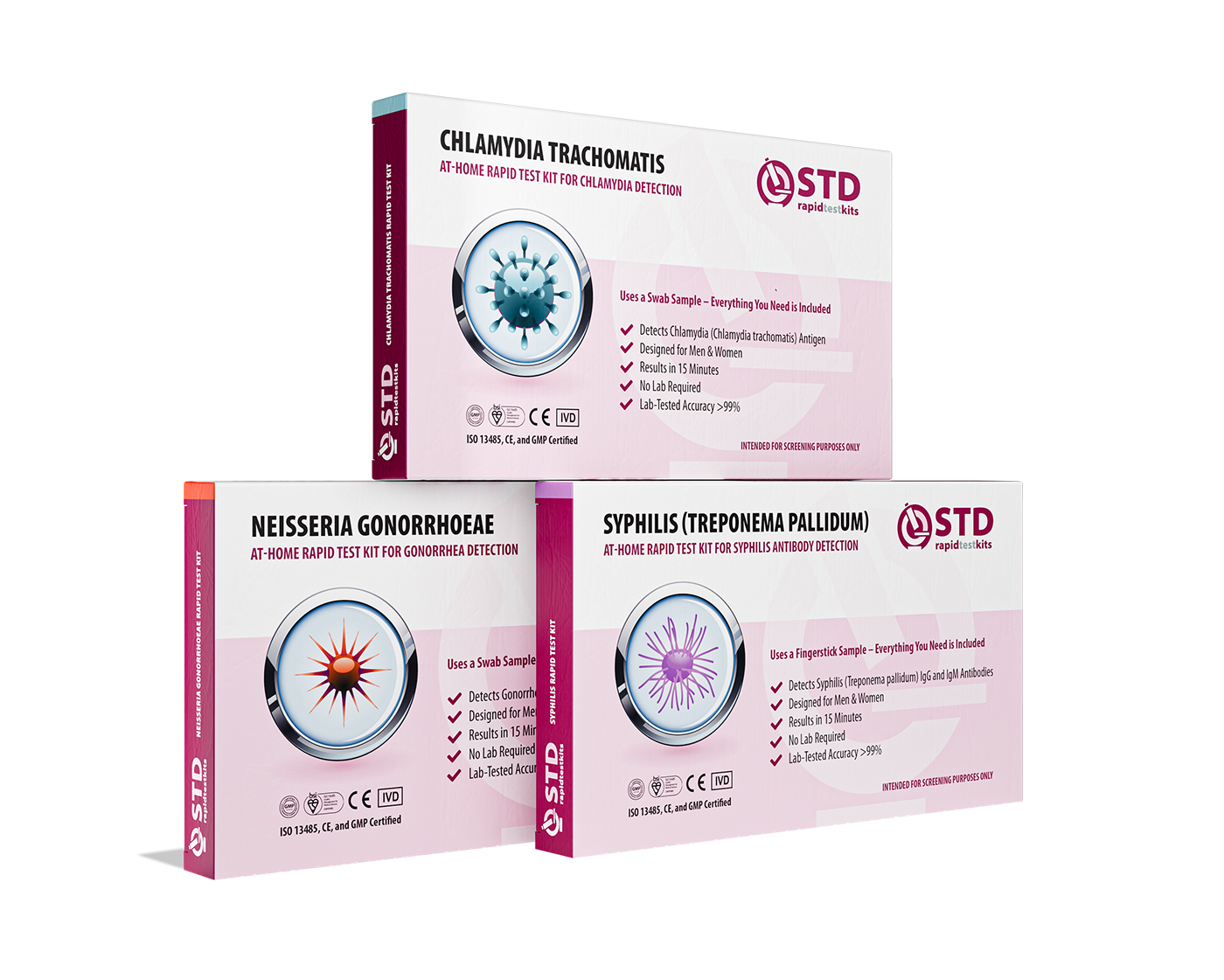Who Needs STD Testing and How Often? A Friendly Breakdown You Can Trust
What is the Cause of Congenital Syphilis in Newborn Babies?
Congenital syphilis is caused by the transmission of the bacterium Treponema pallidum to the unborn infant from a mother suffering from syphilis during her pregnancy. Untreated syphilis may lead to severe complications in pregnancy and can be transmitted at any during gestation.
- Rapid Multiplication: The bacteria of early syphilic infection multiply very rapidly, which increases the likelihood that some of them may cross the placental barrier.
- Latent Stage Transmission: Even when the disease is in its latent phase, syphilis still has effects on the fetus, which include developmental delays and organ damage; this is what is referred to as late congenital syphilis transmission.

Obstetrical Complications
- Stillbirth: Stillbirth risks increase if syphilis is left untreated.
- Preterm Labor: The infection might cause labor to begin early and may endanger the life of the unborn child.
- Miscarriage: Syphilis might cause loss of pregnancy, especially within the early stages of the pregnancy.
Effects on Infants
- Warning Signs of Congenital Syphilis: At birth, there are no apparent signs that a baby has syphilis, but weeks or months later the infant may develop skin rashes, bone deformity, anemia, or liver and spleen enlargement.
- Neurological and Developmental Issues: If left untreated, congenital syphilis can cause vision, hearing loss, delayed development, or deafness.
- Serious Complications: Severe congenital syphilis can lead to the death of a newborn within hours after birth.
Order Now $33.99 $49.00 Check Your STD Status in Minutes
Test at Home with Remedium
Syphilis Test Kit




Prevention of Syphilis in Pregnant Women
Fortunately, congenital syphilis is preventable through early diagnosis, treatment, and prevention. This can be done as follows:
- Testing Early: The best time for the first prenatal visit for all pregnant women is for syphilis testing. Third-trimester testing or testing at the time of delivery should be provided to high-risk pregnancies.
- Treatment with Antibiotics: Antibiotics, including penicillin, cure syphilis; therefore, prompt treatment of the pregnant woman is the key. A woman who gets early treatment will prevent the risk of transmitting the disease to her unborn baby.
- Education: Get a good education. You can save yourself from syphilis if you have knowledge about the symptoms and risk factors.
- Safe Sex Practices: The chances of syphilis in pregnant women are reduced by the use of condoms at the right time and frequently; hence, safe sex is to be performed.
Regular Prenatal Screenings and Its Importance
Regular prenatal check-ups are vital for the health of both the mother and the unborn child. Testing plays a very significant role in the early detection of the disease, such as syphilis, and its management to prevent complications. You are also able to monitor the progress of your baby through growth and development during regular check-ups.
- Timely Vaccinations and Treatments: Get your shots and treatments when you need them.
- Open Communication: Discuss concerns with your doctor.
Testing can be done at clinics, hospitals or using at-home STD test kits. Consult your health professional if you believe you may have syphilis.

What Home STD Testing Kits Can Tell Us About
One of the discreet and easiest options to find syphilis early is using an at-home STD testing kit. This is very convenient, especially for females who find it difficult to reach a health care provider. In these kits, you avail:
- Easy Access: You can be tested without you having to leave your house or book an appointment with any physician.
- Speed: You get results within days.
Explore at-home STD testing kits here. If the test results are positive, call your doctor right away so that further testing and treatment can be done.
Order Now $69.00 $147.00 Check Your STD Status in Minutes
Test at Home with Remedium
3-in-1 STD Test Kit




For all 3 tests
FAQs
1.- How may congenital syphilis be contracted?
The bacterium Treponema pallidum causes congenital syphilis, which is transmitted from an infected woman to her unborn child during pregnancy or delivery. In the absence of treatment, it poses a significant risk to the developing fetus.
2.- What effects does syphilis have on a pregnancy?
Low birth weight, preterm delivery, stillbirth, or miscarriage can result from syphilis during pregnancy. Babies afflicted with syphilis may potentially experience severe health complications soon after being born.
3.- How may a newborn be diagnosed with congenital syphilis?
Anemia, rashes on the skin, enlarged liver or spleen, abnormalities in the bones, and delays in growth are all possible symptoms. It could be weeks or months after delivery before you notice any symptoms.
4.- How does a newborn with congenital syphilis get the diagnosis?
A thorough physical examination, along with blood testing, imaging examinations, and spinal fluid analysis, may be necessary for a diagnosis. Preventing transmission to the fetus requires early testing during pregnancy.
5.- Is it possible to prevent congenital syphilis?
It is possible to avoid congenital syphilis by taking precautions throughout pregnancy, including getting a syphilis test done often and treating any symptoms that may arise. Learn more about syphilis testing here.
6.- What options are there for treating syphilis during pregnancy?
When treating syphilis during pregnancy, penicillin is your best bet. Reducing the likelihood of problems and preventing transmission to the baby are two benefits.
7.- Can one trust at-home STD testing kits to identify syphilis?
Detecting syphilis has never been easier or more unobtrusive than with at-home testing kits like these syphilis test kits. Still, you should never go without medical confirmation before seeing a doctor for therapy or more tests.
8.- How often throughout a pregnancy should a woman be checked for syphilis?
The first prenatal visit is the recommended time for a syphilis test in pregnant women. It is advised to do extra tests throughout the third trimester and delivery for pregnant women with a high risk of complications.
9.- What is the outcome of a pregnancy in which syphilis is left untreated?
Serious complications, including stillbirth, neonatal death, or neurological and developmental disabilities in the infant, can arise from untreated syphilis.
10.- In order to avoid congenital syphilis, why is prenatal care important?
Infections like syphilis can be caught early and treated quickly through prenatal care, which lowers the chance of the mother and child contracting the disease and increases the likelihood of a healthy delivery.
Don't Risk Your Baby's Health!
Knowledge of the risks and taking appropriate action can help you and your child be safe. In order to safeguard your health when you are pregnant or trying to get pregnant, do the following:
- Get Tested: Get tested for syphilis as part of your routine prenatal care. Further treatment should then follow ASAP to avoid any complications in case any detection is noted.
- At-Home Testing Kits: Consider using one of those at-home STD testing kits that exist for the sake of convenience and speed.
- Prioritize Health: Prioritize your health now, so you'll be able to avoid congenital syphilis in your newborn, ensuring your and their health for years to come.

Sources
1.- PubMed - Syphilis in Pregnancy Overview
2.- PMC - Effects of Syphilis on Pregnancy Outcomes
3.- Healthline - Syphilis During Pregnancy










